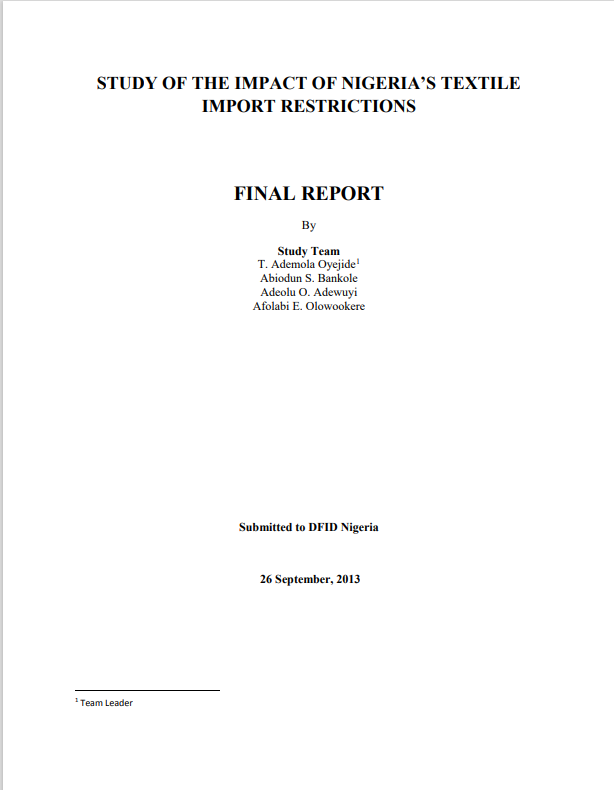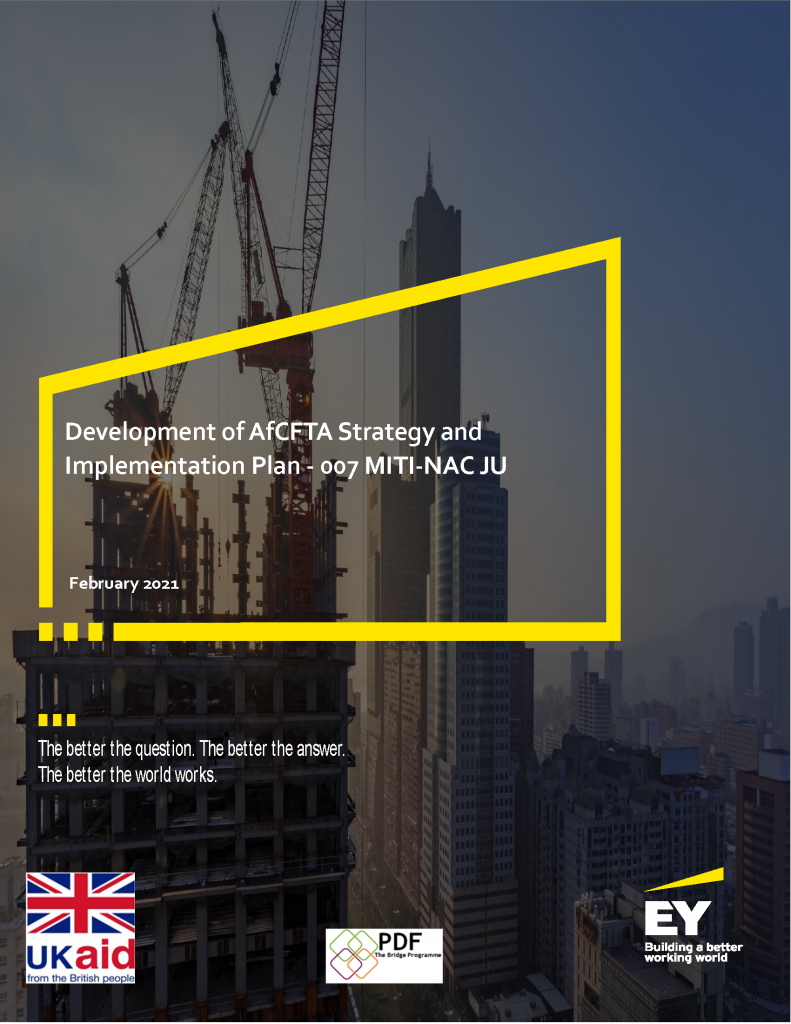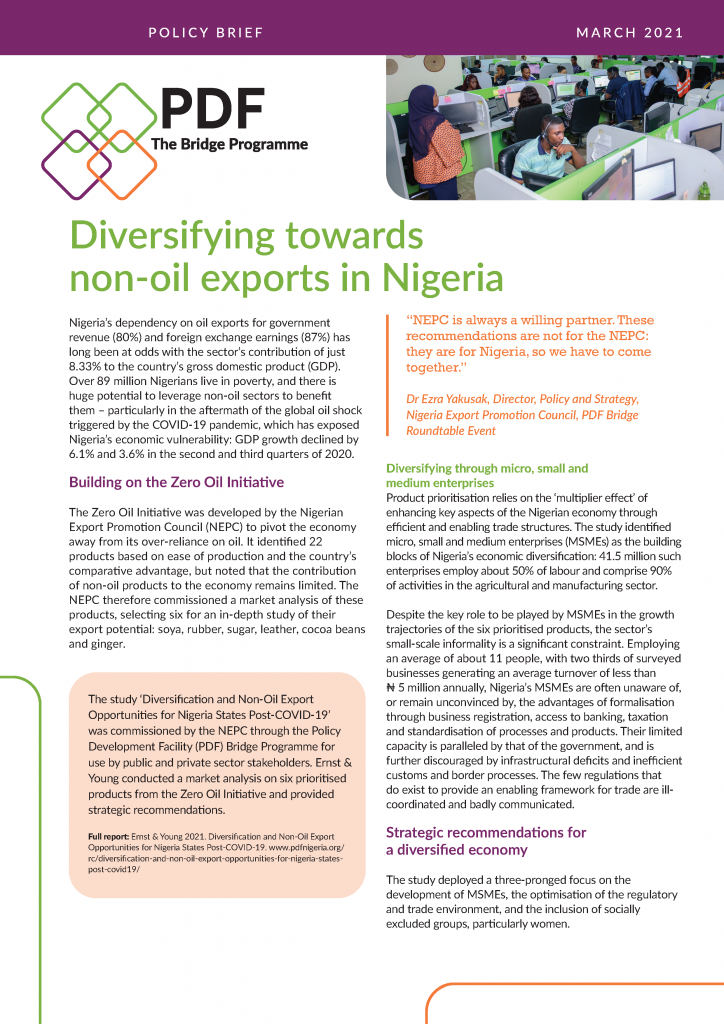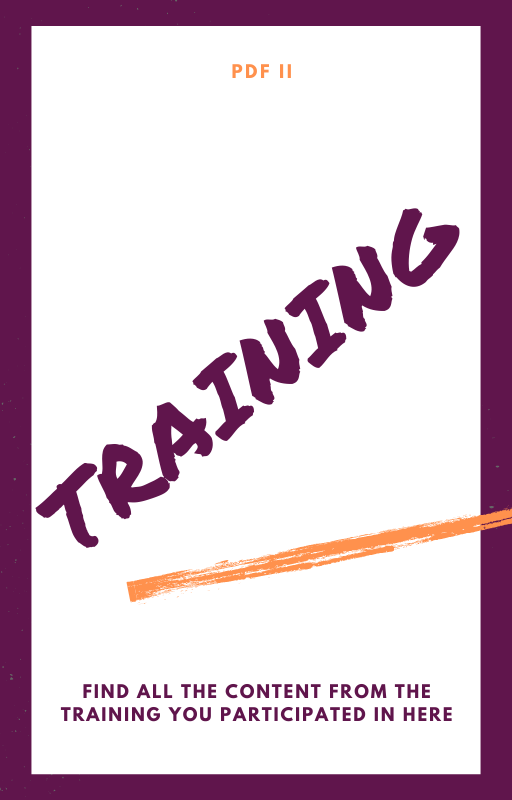This study focuses on the determination of the impact of Nigeria’s textiles import restriction. Specifically, the study describes the structure of the global and Nigeria’s textile industries as well as the global value chain, and the policy environment surrounding the industry in a global and national perspective. It was conducted in 2013 with support from FCDO (formerly DFID).
STUDY OF THE IMPACT OF NIGERIA’S TEXTILE IMPORT RESTRICTIONS
Associated resources
This report documents the strategic plan for the implementation of the Africa Continental Free Trade Agreement (AfCFTA) by Nigeria following a diagnostic review of the prevailing trade ecosystem including the participants (traders and service providers), the regulating agencies, prevailing policies, and processes as well as the level of regional integration.
The study ‘Diversification and Non-Oil Export Opportunities for Nigerian States Post-COVID-19’ was commissioned by the NEPC through the Policy Development Facility (PDF) Bridge Programme for use by the public and private sector stakeholders. Ernst & Young conducted a market analysis on six prioritised products from the Zero Oil Initiative and provided strategic recommendations.
PDF Bridge has now developed a policy brief for stakeholders to highlight the key issues and recommendations. The full study can be accessed here.
Businesses that operate in a particular domain are expected to adhere to some rules and regulations. Here is a training material that covers some of these requirements. This does not take the place of legal advice.
The Trade Policy Work Stream conducted a needs assessment to get direct feedback from export-oriented MSMEs, export-supporting government institutions, and export business service providers to ascertain the capacity gaps. The top 5 challenges highlighted by the respondents include lack of market linkages, lack of finance, lack of market intelligence, limited knowledge of destination country requirements, and Export documentation.
In response to their needs, TRD workstream designed a targeted capacity building for the non-oil export community of practice to address the knowledge and skill gaps through a 4-part Export Capacity Building (CB) Series. The following topics were covered in this sequence:
- Market Entry strategies (with case studies: Europe (EU), US, China)
- Raising Finance for Your Export Business
- Understanding Export Documentation
- Branding and Packaging for export
PDF II held a two-day capacity building training themed: “Capacity Building for Banks and DFIs”. This is designed to explore access to finance challenges, awareness campaigns, and opportunities that non-oil exporters face with banks in accessing finance. The capacity building covered topics such as Export Industry Regulations and Documentations, payment methods and trade finance instruments, Handling export finance options, managing export risks, understanding the franchising potential etc.





